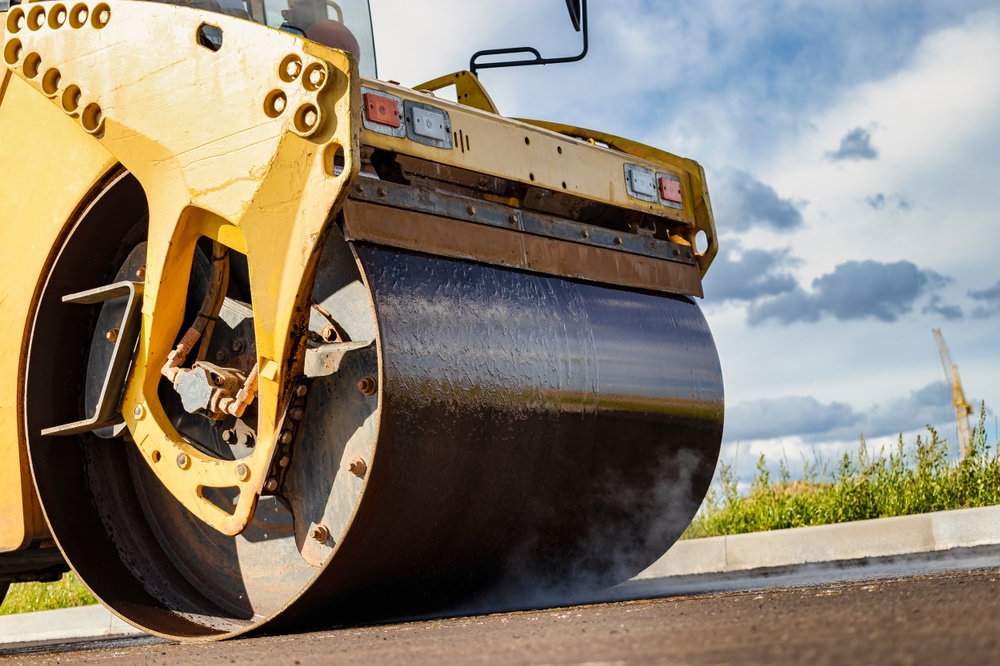When planning a pavement project—whether it’s for a residential driveway, a commercial parking lot, or a public roadway—one of the most common questions is: how long will this project take? The timeline for a pavement project can vary depending on several factors, including the scope of the project, the type of paving material used, and weather conditions.
At M.T. Laney, we understand the importance of staying on schedule and minimizing disruptions to your property or business. In this blog, we’ll break down what influences the duration of a pavement project and what you can typically expect.

Project Scope and Size
The size and complexity of the project play a significant role in determining how long it will take to complete. A small residential driveway may take only a day or two, while a large commercial parking lot or roadway could take several weeks to complete.
For example:
- Residential Driveways: On average, a driveway project can be completed in 1-3 days, depending on its size and the preparation required.
- Commercial Parking Lots: These projects are larger in scale and may take 1-2 weeks, depending on the surface area and any special design considerations, such as drainage systems or line striping.
- Roadways: Repaving a public roadway is more complex and could take several weeks or even months, depending on the length of the road, traffic management needs, and environmental factors.
Type of Paving Material
The choice of paving material also affects the project timeline. Asphalt is one of the most popular choices for both residential and commercial projects because of its relatively quick installation time.
- Asphalt Paving: Asphalt projects typically move faster because the material can be laid quickly and often requires less curing time compared to other materials like concrete. Asphalt can usually be driven on within 24-48 hours after installation.
- Concrete Paving: Concrete takes longer to install and cure. While the installation might take a similar amount of time as asphalt, concrete needs several days to fully cure before it can be used, extending the overall project timeline.
Site Preparation and Condition
Before the actual paving begins, the site must be properly prepared, which can impact the timeline. This includes things like grading, removing old pavement, and ensuring proper drainage. If the site requires extensive preparation—such as leveling uneven ground or addressing drainage issues—this can add a few extra days to the project.
In addition, if existing pavement needs to be removed, the demolition process can take some time, especially if heavy machinery is needed.
Weather Conditions
Weather plays a significant role in determining the timeline of a pavement project. Paving requires specific temperature conditions to ensure proper adhesion and curing of the materials. If it’s too cold or rainy, the project may need to be delayed until conditions improve.
- Ideal Conditions: Warm, dry weather is ideal for paving projects. In these conditions, the project can progress smoothly with minimal interruptions.
- Weather Delays: If you experience heavy rain or extreme temperatures during your project, there may be delays, as these conditions can affect the quality of the pavement and delay curing times.
Contractor Experience
Finally, the expertise and efficiency of the paving contractor can influence how long the project takes. At M.T. Laney, our experienced team ensures that projects are completed efficiently and to the highest standards, minimizing delays while maintaining the quality of the work.
Get Your Paving Project Done Right with M.T. Laney
Understanding the factors that influence the timeline of a pavement project can help you plan more effectively. Whether you’re looking to repave your driveway or undertake a larger commercial project, M.T. Laney has the experience and expertise to get the job done on time and within budget. Contact us today to discuss your next paving project and get a reliable estimate!

 (410) 795-1761
(410) 795-1761
